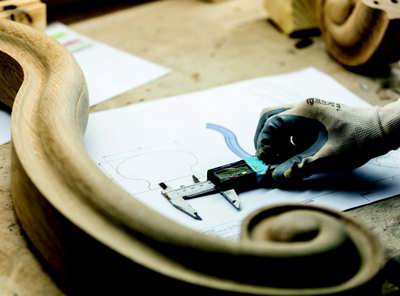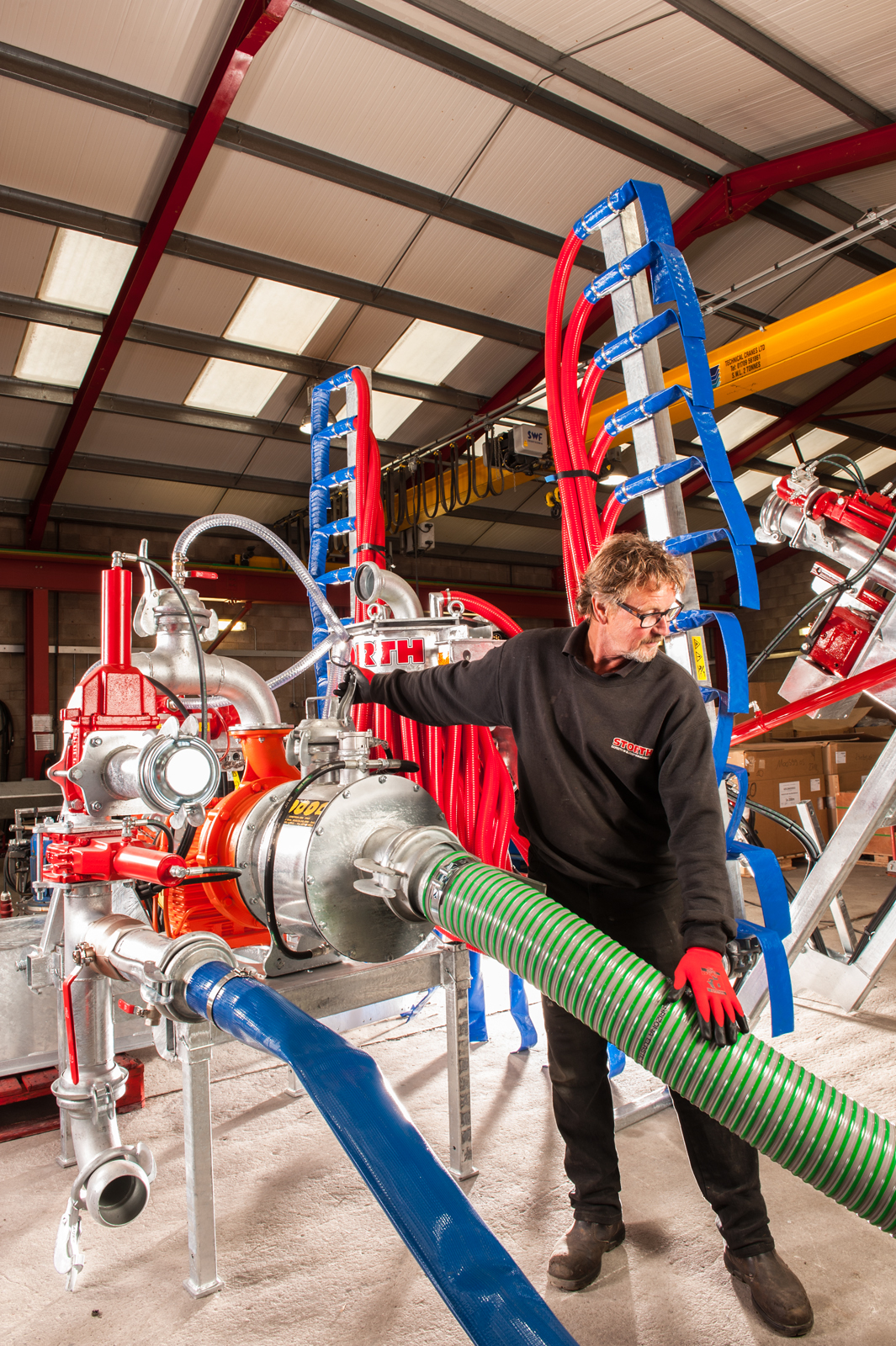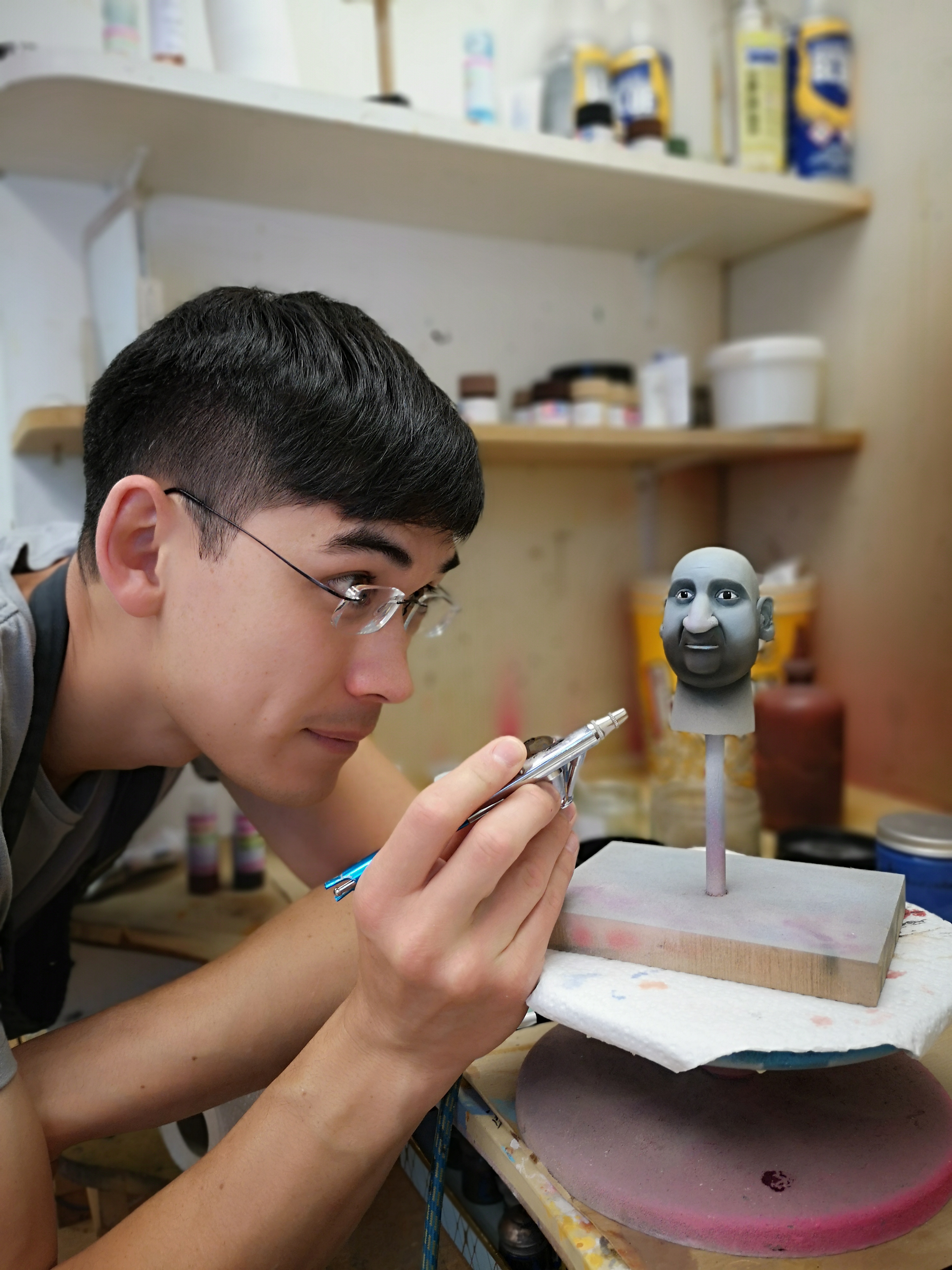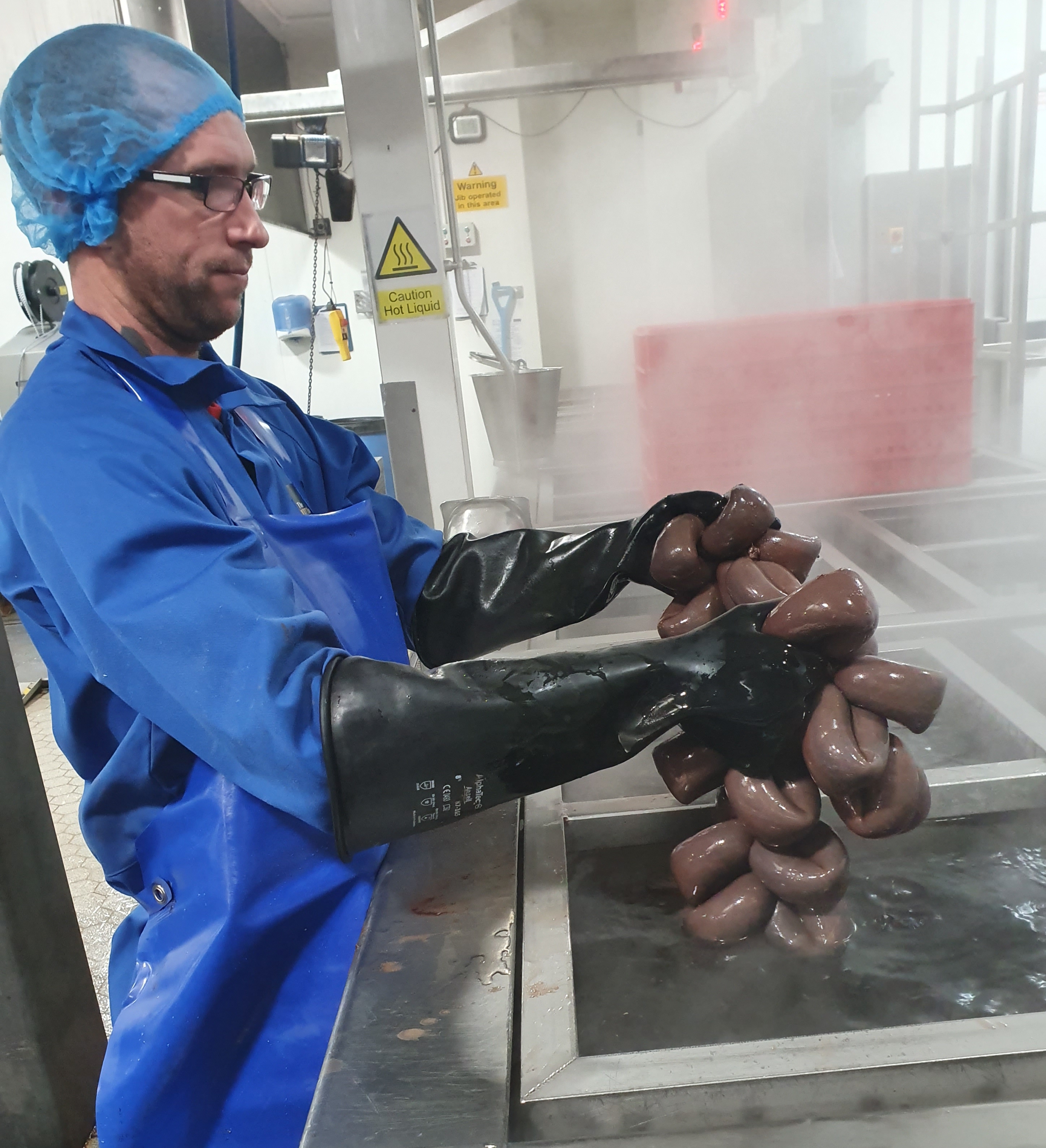
Based in Bolton, the specialist handrail manufacturer has found success combining traditional product design and digital modelling with aerospace expertise.
From humble beginnings with two staff and a beat-up, secondhand CNC machine which had survived a lightning strike and gave error messages in Italian or Spanish, the Macfarlanes now have 20 employees on cutting edge machinery creating one-off pieces for clients such as the US Embassy, the Houses of Parliament and celebrities’ homes.
While Kenny and Martin have invested in technology to grow the business, they recognise that adopting state-of-the-art systems and software is crucial to firming up its future.
View the Case StudyWith more than 70 live projects being managed at any one time and 75% of surveys done using a 3D scanner, we are looking at saving a lot of man hours.
Kenny MacFarlane, Handrail Creations
For the last three years the business has used handheld scanner technology to capture measurements on site before installing the handrail.
By capturing this data and inputting it into CAD software it is possible to re-create the area digitally and design the handrail. This helps with accuracy and allows a customer to preview the design before it is fitted. However, the incumbent scanner is tethered to a battery and laptop which makes it difficult to capture a complex staircase.
There is also the problem of data compatibility between the scanner and CAD software to create the necessary geometry for 3D modelling.
Kenny explained: “Because every handrail and balustrade we do is bespoke we are always fitting to stairs that are just as unique, whether they are concrete, stone, timber, or the balustrade is glass or
wrought iron.
“Most of the time there aren’t drawings, so we need an accurate way to capture 3D geometry.
“Scanning technology is moving very fast and our tech will soon be obsolete. Bearing in mind we are on dusty, messy construction sites which affect the technology, there are safety concerns with using that sort of cumbersome equipment, as well as issues of accuracy and speed.”
With the support and match funding from Made Smarter, Handrail Creations have been able to invest in a new handheld scanner and software designed to integrate with its systems.
This latest model, due in September 2019, is completely untethered and uses cameras and lasers to collect the data to build a 3D picture. This allows the design team to access a very definite coordinate system for our modelling process and gives them more design freedom.
Kenny said: “It is an extremely rare event, but if the scan data is wrong, we won’t know until after it has been surveyed, programmed, manufactured, hand-finished and installed. Traditionally, the only solution is to go back to the start.
“This new equipment will cut that out.”
Handrail Creations believes the adoption of the new technology will improve its overall processing speed by 25%.
Kenny explained: “While the new equipment will speed up the scanning process and reduce survey time, the real benefit will be in the processing speed, converting the data into something that is usable for our design team.
“It will increase our efficiency, but more importantly it will reduce the chance of error, ensuring that our bespoke products are right first time.”
This improved efficiency will boost productivity and support Kenny and Martin’s growth plans, which include creating two new jobs. The current workforce will also be upskilled with training on the new software system.
The increase in productivity at Handrail Creations is also expected to boost the region’s GVA by £103,079 by 2022.
Kenny believes its new 3D scanner is well aligned with the advances in augmented reality technology, which could be able to showcase multiple designs for clients.
“To be able to pick up shapes, colours, shades and patterns with scans we can build a 3D photograph, which means ultimately, we can look at augmented and virtual reality, so clients can see their own designs,” he said. “It’s a long way off but we want to be at the forefront and setting the standards for the market.
“Joinery is no longer an old fashioned trade. Using state-of-the-art 3D scanning systems and software is crucial to building".








